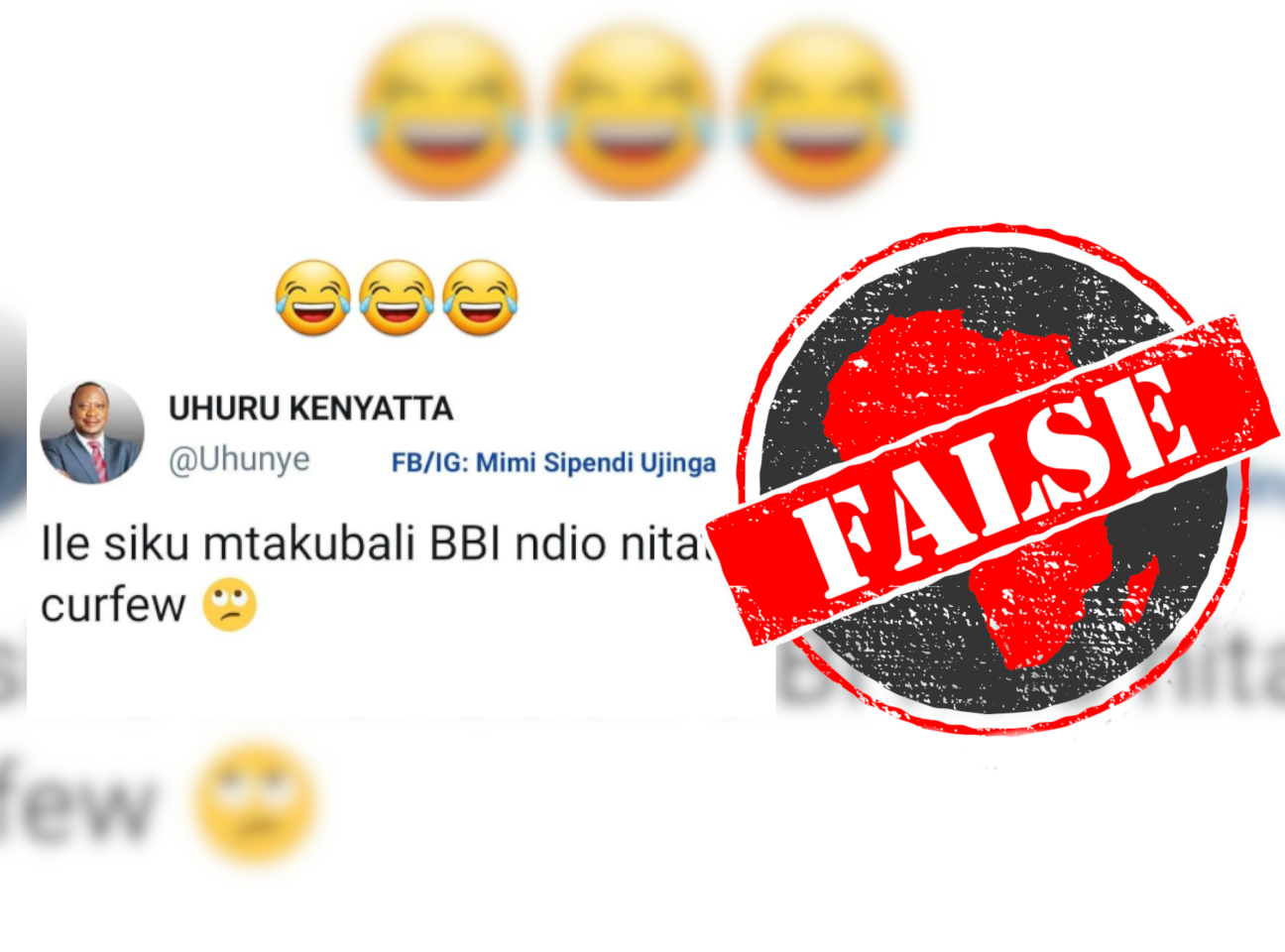Kenyan president Uhuru Kenyatta has tweeted that he will only lift the nationwide night-time Covid-19 curfew if citizens accept controversial proposed changes to the constitution under the Building Bridges Initiative.
Or so it appears, in what seems to be a screenshot of a tweet from a Twitter account with the name “Uhuru Kenyatta”, circulating on Facebook.
“Ile siku mtakubali BBI ndio nitatoa curfew,” it reads, in Kiswahili. This translates as: “The day you accept BBI is the day I will lift the curfew.” The tweet is also quoted in the text of another Facebook post.
The Building Bridges Initiative was set up after the “handshake” truce between Kenyatta and Orange Democratic Movement opposition leader Raila Odinga in 2018. The two have been at the forefront of popularising amendments to the constitution, which will be decided in a referendum.
On 3 January 2021, Kenyatta extended the curfew to 12 March 2021, saying the Covid-19 pandemic remained a threat to health and livelihoods in Kenya.
But did the president tweet that the curfew would only be lifted when people accepted BBI? We checked.

Kenyatta not on social media
The president’s Facebook and Twitter accounts were deactivated in March 2019, due to what State House claimed was “unauthorised access”, without further elaboration.
The president confirmed in November 2020 that he had quit the platforms.
“I am not good at it. I also left Twitter because it was full of insults and nothing constructive,” he was quoted as saying, in part.
Almost all updates from the president’s office now appear on the State House Kenya Facebook and Twitter pages.
Parody account
Africa Check searched for the tweet and found it. It appears on a Twitter account “UHURU KENYATTA (@Uhunyeparody)”.
It has been described as a “parody account of the fourth and current president of the Republic of Kenya”. Most of the screenshots being circulated have the word “parody” removed, to make it appear authentic.
Republish our content for free
For publishers: what to do if your post is rated false
A fact-checker has rated your Facebook or Instagram post as “false”, “altered”, “partly false” or “missing context”. This could have serious consequences. What do you do?
Click on our guide for the steps you should follow.
Publishers guideAfrica Check teams up with Facebook
Africa Check is a partner in Meta's third-party fact-checking programme to help stop the spread of false information on social media.
The content we rate as “false” will be downgraded on Facebook and Instagram. This means fewer people will see it.
You can also help identify false information on Facebook. This guide explains how.





Add new comment